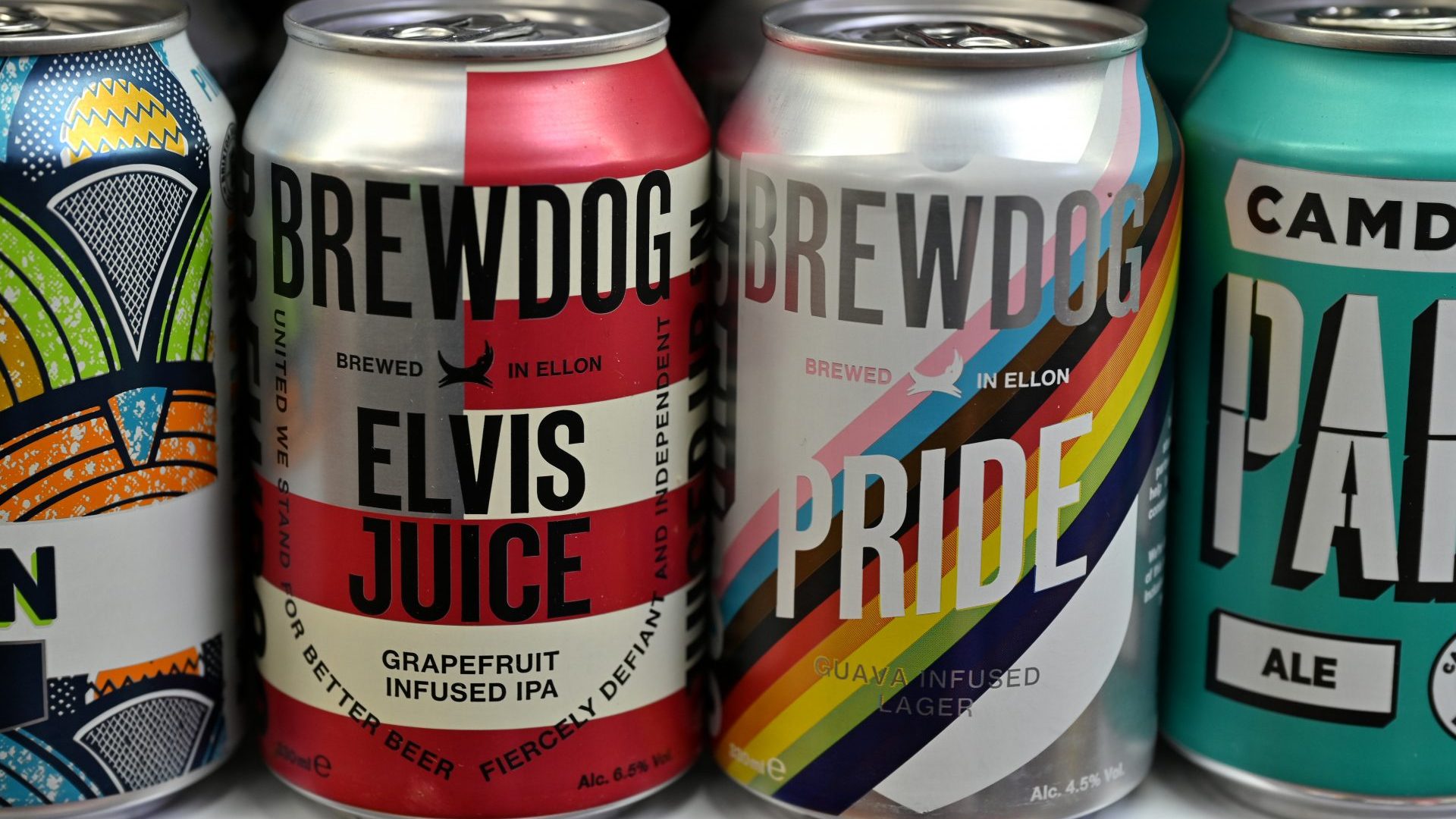James Watt built quite the legacy at BrewDog. He co-founded the Scottish beer brand in 2008 and helped to turn it into one of the most recognisable in the country. What was once hailed as an upstart is now the seventh biggest in the UK.
Watt stepped down earlier this year after various BrewDog controversies – abandoning the Real Living Wage, criticism over alleged sexist and transphobic marketing, facing multiple accusations of a “toxic” working environment from staff – and handed the reins to incumbent CEO James Arrow. Yet Watt didn’t disappear entirely. Instead, he dubbed himself “captain and co-founder” and he still has 21% of the firm’s shareholding.
What might have marked a new, possibly more positive era for BrewDog, the modern and resolutely not-at-all-punk “craft beer” that’s found everywhere from British Airways planes to Spoons, does not appear to have manifested, however. Rather, the company is now facing the wrath of Unite Hospitality, the leading union for those working in pubs, restaurants and hotels.
This comes after Tribune magazine reported that a worker – and person of colour – at BrewDog’s flagship Waterloo pub claimed she was sacked after complaining about the fact that members of the EDL were meeting there to drink ahead of their St George’s Day rally on April 23.
The rally was led by Tommy Robinson (since arrested in Canada for immigration offences) and Laurence Fox (since failing, as per, to have any notable impact on British politics).
BrewDog accused the employee of “aggressive behaviour and use of inappropriate language” after she raised her concerns and told Tribune it would not be going back on its decision to dismiss her because “there was a clear and unacceptable breach” of its workplace code of conduct.
I read the Tribune story without surprise. BrewDog is often a subject of disdain and dismay, particularly among hospitality types. Less surprising still was that, at the time of writing, its captain hasn’t stepped in or spoken out.
The Scotsman, who lurched on to Britain’s beer scene all those years ago by throwing taxidermy cats out of a helicopter above the City of London and blowing up cans of Heineken, has been busy elsewhere though. He recently announced he would buy every customer in BrewDog Waterloo – yes, the same one – a beer were Scotland to win their last game in the Euros (they did not).
Watt, now worth £260m, has also been posting videos on Twitter (sigh, X) about his latest business idea: an app that turns “customers into influencers”, It is called Social Tip. It is a terrifying prospect from a man who attended Nigel Farage’s 60th birthday party.
The app sounds hideous by design. As Watt so simply put it in a lengthy social media post, it works thus: “1) Someone buys something from one of our partner brands. 2) They then post about it positively on social media.
3) Social Tip’s proprietary technology works out the value of that post. 4) That person is then rewarded in real cash.”
It is soon to launch and will apparently be up and running later this summer. Brands that appear on the website include BrewDog, PureGym, Dash water and Popworld, though there isn’t anything to say which have confirmed and to what extent they are involved. Nor does it say how much users will earn per post.
Still, Watt has suggested his latest project “builds on everything I have learned from almost two decades at the cutting edge of marketing” and says that “none of the wildest campaigns, craziest stunts or cleverest advertising even came close to the brand-building power of genuine peer-to-peer recommendations”.
It is amusing, if a little mystifying to see this latest foray into “punk”. With more time on his hands, Watt is now tapping into influencers – the online Wild West where there are few rules, little regulation.
Is a recommendation truly “genuine” if the recommender knows they are being paid for it? No time to ponder that – let’s just partner with brands and creative sorts who take photos and build personalities and make money out of doing so!
Lamentations of influencers happen all the time. Especially by old-school journalists who dislike people who stand in front of private jets holding small dogs.
Yet pitched against Watt, I find myself worrying over people who are trying to build something of their own by way of social media and who have absolutely no need for a centralised app to do so.
It’s too late to call for a boycott of BrewDog: it has more than 3,000 employees. What is required is more nuanced and complex. But Social Tip? My tip for you is this: leave it well alone.




